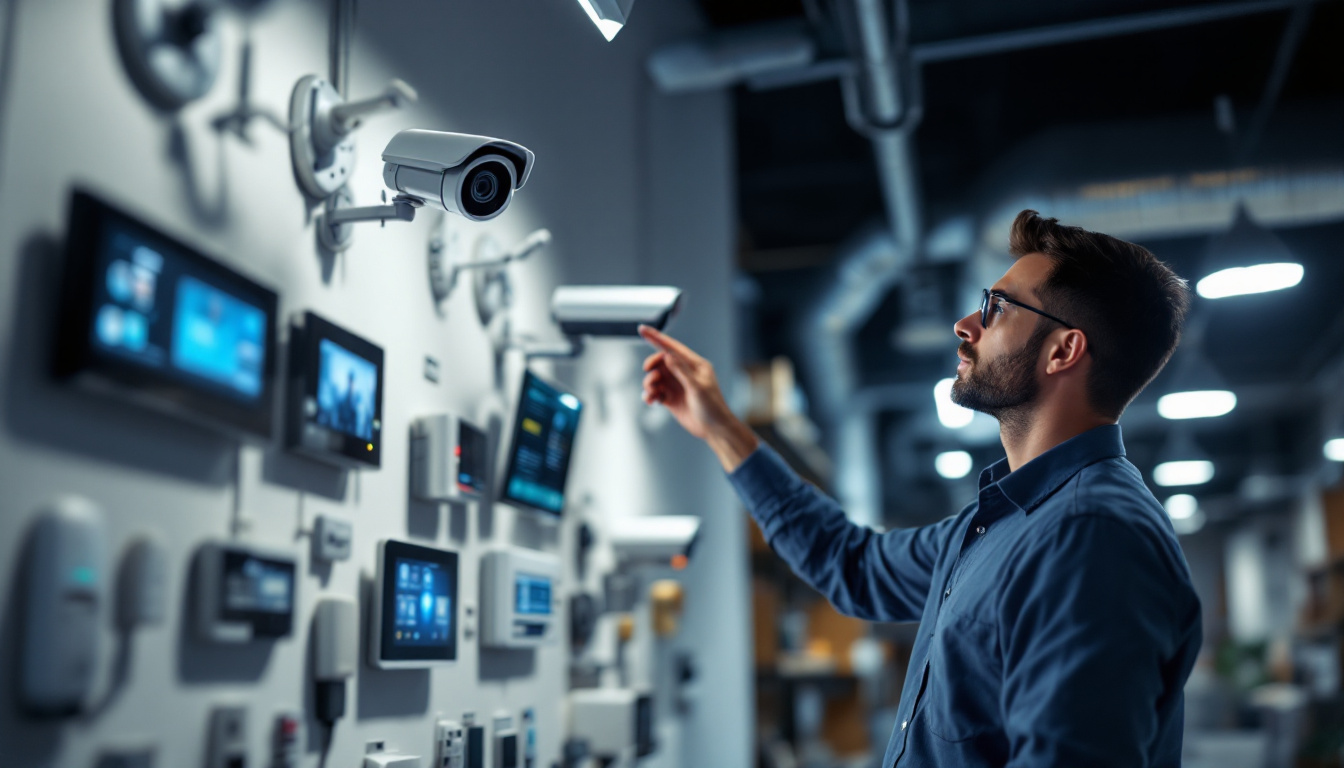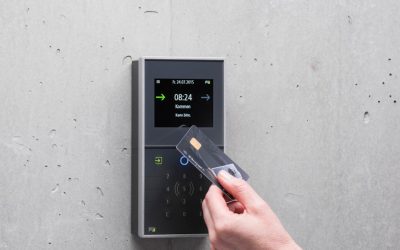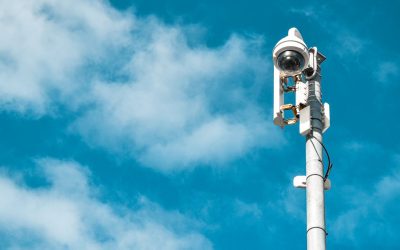Understanding the importance of commercial security systems
In today’s fast-paced business environment, securing your premises and assets is more critical than ever. As a business owner, the safety of your employees, customers, and inventory should be a top priority. A robust commercial security system plays a crucial role in safeguarding your investment from theft, vandalism, and other potential threats.
By implementing effective security systems, you not only protect your physical assets but also create a safe environment that fosters trust and confidence among your employees and clients. When your business is secure, you can focus more on growth and less on potential risks.
The role of security in business operations
Security is not merely an additional expense; it is an integral part of your operational strategy. A comprehensive security system streamlines your business operations by allowing for better management of risks. Furthermore, it can enhance your reputation, showing stakeholders that you value their safety.
Moreover, effective security measures can lead to a decrease in insurance premiums, resulting in long-term financial benefits. By investing in a security system, you are also investing in peace of mind, knowing that you have taken proactive steps to protect your enterprise.
The potential risks of inadequate security
Neglecting your security systems can have severe ramifications. The financial implications of theft or vandalism can be crippling for small and medium-sized businesses. Beyond the immediate loss of assets, there’s also the long-term impact on your reputation.
Without proper security measures, you expose yourself to various risks such as data breaches, physical damage, and loss of customer trust. It is essential to recognise that inadequate security could jeopardise the very foundation of your business.
Key features to consider when choosing a security system
When searching for the right commercial security system, several key features should be at the forefront of your decision-making process. Each feature serves a unique purpose, and understanding their importance can lead you to the ideal solution for your needs.
It may seem overwhelming at first, but breaking down the features into digestible parts can help ease the selection process. Here’s what you need to consider.
Surveillance cameras and their benefits
Surveillance cameras are often the backbone of any security system. They provide real-time monitoring and can serve as a deterrent to potential intruders. Modern cameras come equipped with features such as high-resolution images, night vision, and cloud storage, which can be indispensable for ensuring comprehensive coverage.
In addition to physical protection, the presence of cameras can provide valuable evidence in the event of an incident, helping law enforcement resolve matters swiftly. This not only protects your assets but can also assure your clients that you take their security seriously.
Intrusion detection systems and their role
Another vital feature to consider is an intrusion detection system. These systems monitor for unauthorised access, alerting you and local authorities when a breach occurs. Many intrusion systems now offer smart technology features, allowing for remote monitoring via smartphones or tablets.
These systems often work in conjunction with alarms and can be tailored to fit the specific needs of your business, ensuring maximum protection at all times. A back-to-base alarm sends real-time alerts to a monitoring centre, allowing for immediate response to potential security threats. This means that if an alarm is triggered, trained professionals can assess the situation and take necessary action, such as notifying emergency services or contacting key personnel. They provide an added layer of safety that can be crucial, especially when your business operates during odd hours.
Access control systems: What to look for
Access control systems are essential for managing who can enter various parts of your business. This is especially important for companies dealing with sensitive information or high-value assets. Look for systems that allow custom access levels and have tracking capabilities to monitor entry and exit points.
Modern access control solutions include key cards, biometric systems, and mobile access. Choosing a system that integrates with your existing security tools can provide seamless operations and enhanced security.
The process of selecting a commercial security system
Choosing from countless commercial security systems on the market is no easy feat. Therefore, taking the time to evaluate your specific needs can significantly influence your final decision.

Here’s a straightforward guide to help you navigate this process.
Identifying your business’s unique security needs
Start by assessing the specific risks associated with your business. Consider factors such as the nature of your industry, the value of your assets, and previous security incidents. Engaging with your staff can provide insights into areas that may require additional protection.
By clearly defining your security needs, you set a foundation upon which you can build a tailored security system that aligns with your business objectives.
Evaluating different security system providers
Once you’ve identified your security needs, the next step is to research different providers. Look for companies with a solid reputation, experience in your industry, and positive customer feedback. Check if they offer comprehensive solutions and ongoing support, as this can be crucial in the long run.
It’s also beneficial to request quotes and see product demonstrations, enabling you to establish a clear understanding of what each provider can offer. This is a significant investment, so ensure you take the time to thoroughly evaluate your options.
Making the final decision: Factors to consider
When it comes to the final decision, several factors should weigh into your choice. These include budget, scalability, technology features, and customer support. Make sure the system you select is not only within your current budget but also allows for future growth as your business expands.
Moreover, selecting a provider that values customer service can make a significant difference. A responsive partner will help you troubleshoot issues, and guide you through updates or expansions as needed.
Implementing your chosen commercial security system
Once you’ve selected the appropriate system, the next vital step is its implementation. This phase is as critical as the selection process and requires careful planning and execution to ensure a smooth transition.
Preparation is key here.
Installation process and considerations
When it comes to installation, liaising closely with the chosen provider can streamline the process significantly. Make sure you understand the installation timeline, any necessary modifications to your premises, and how this might impact daily operations. It’s essential to have a clear understanding of your business’s workflow during the installation phase to minimise disruptions.
In addition, consider running checks before full implementation to ensure that the system operates as required and that all employees know the functionality.
Training staff on the new security system
A security system is only as effective as those operating it. Therefore, offering comprehensive training to your staff is essential. Ensure everyone understands how to use the various components of the system, from surveillance cameras to access control panels.
By empowering your team with knowledge, you not only enhance the effectiveness of your security measures but also foster a culture of safety within your business.
Ongoing maintenance and updates for your system
The implementation doesn’t end once the system is installed and employees have been trained. Regular maintenance and updates are crucial for ensuring your security system remains effective. Schedule periodic checks and be vigilant about updating software to protect against potential vulnerabilities.
By keeping your systems and protocols current, you’re not only safeguarding your assets but also demonstrating to your employees and customers that their security is a priority. This continual commitment to security may well be the defining factor in the longevity and success of your business.










